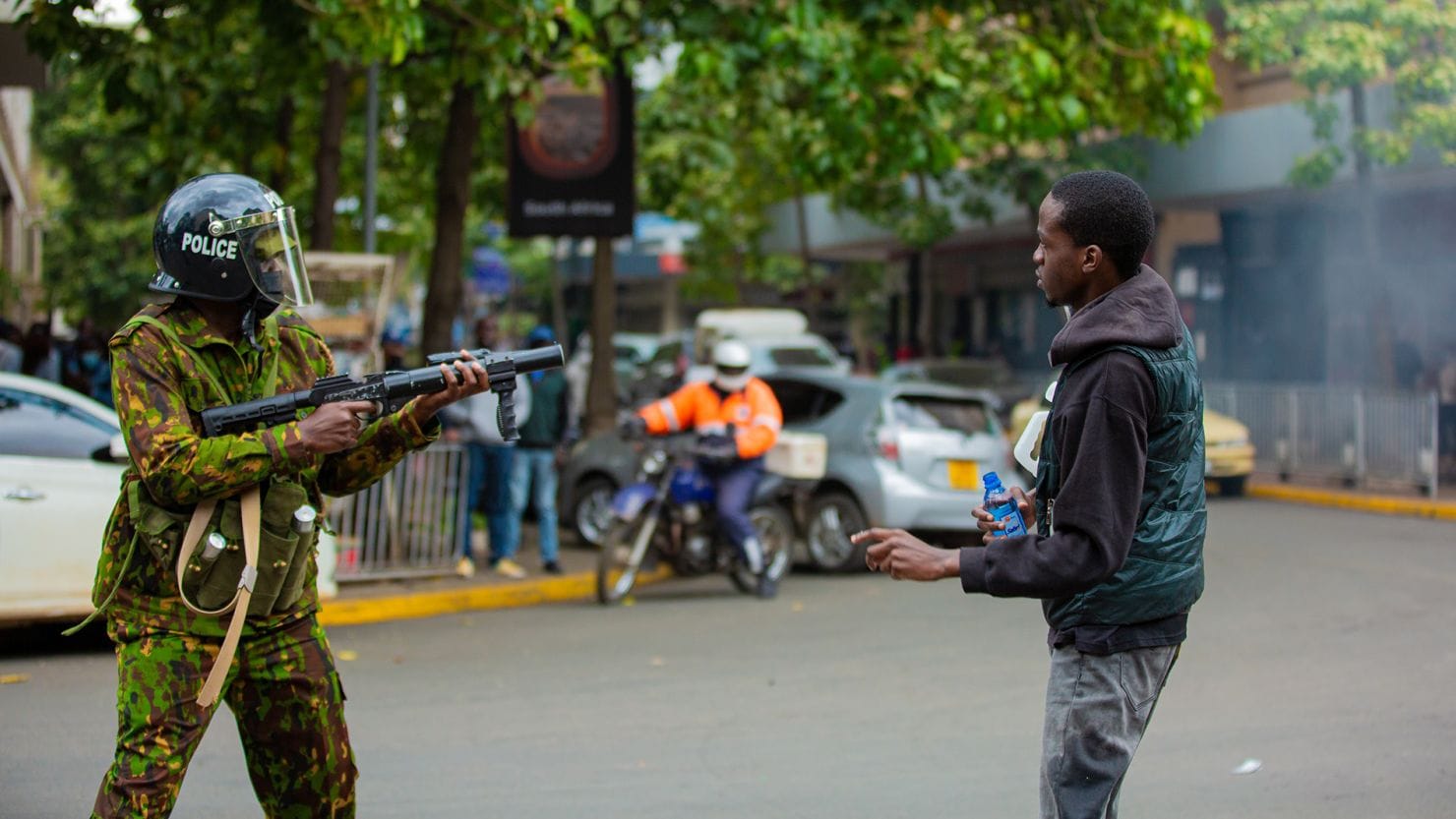Kenya's President Can't Handle His Own Chaos, Let Alone Haiti's: Anti-Tax Protests Erupt
As Kenya braces for nationwide protests on Tuesday, a poignant question arises: How can President William Ruto vow to bring peace to Haiti when his own country is in turmoil?


Protesters are planning to hit the streets to pressure the government over controversial tax reforms currently before Parliament.
The government has issued stern warnings against violence, insisting that protests must end by 6:30 PM local time or sunset, whichever comes first. However, critics argue that the government, and President Ruto in particular, are to blame for the violence that has already marred these demonstrations.

A Nation on Edge
The tension in Kenya reached a boiling point on Thursday when police opened fire on thousands of angry protesters. The demonstrations, which began last Tuesday, have been led primarily by young Kenyans and were initially peaceful. However, as the crowds grew in the capital, Nairobi, anti-riot police resorted to tear gas and water cannons to prevent demonstrators from breaching government offices in the city's business district. This escalation resulted in one death, over 200 injuries, and more than 100 arrests, according to Amnesty International and other human rights groups.

Despite the government's efforts to contain the unrest, the protests have spread across the country, including in Nakuru, Kisumu, and Ruto's hometown of Eldoret, which was brought to a standstill on Thursday.

The Controversial Tax Proposals
What exactly are the protesters fighting against? The financial bill under debate in Parliament proposes a wide range of tax reforms and increases. Among the most contentious are new levies on monetized digital content creation and a 5% tax increase on digital payments, which is particularly burdensome in a country heavily reliant on mobile money.
The proposals that have most incensed Kenyans include a 16% value-added tax (VAT) on bread and a 25% excise duty on domestically produced raw and refined vegetable cooking oil. Additionally, there is a 2.75% extra income charge for salary earners enrolled in the national medical insurance plan and a 2.5% annual tax on motor vehicles.
Protesters argue that these taxes, especially on essentials like bread and vegetable oil, will significantly increase the cost of living. They are also outraged by the bill’s provision granting Kenya's revenue authorities the power to enforce tax collection by accessing bank and mobile money accounts.

Government Concessions and Continued Unrest
In response to the protests, Parliament announced emergency amendments last Tuesday. Kuria Kimani, chairperson of the finance committee, stated that lawmakers would roll back taxes on bread, oil, motor vehicles, and financial transactions, including mobile money payments. However, these concessions have not placated the protesters, who continued to demonstrate despite the arrests of over 200 people on June 18.
On Thursday, demonstrators attempted to occupy Parliament Buildings where legislators were gathering for a second reading of the bill. Social media buzzed with hashtags like #RejectFinanceBill2024 and #OccupyParliament, as lawyers and doctors mobilized to support those detained and treat the injured.

A Delicate Political Situation
The financial bill is a particularly sore point for protesters because it comes amid rising food and living costs in Kenya, exacerbated by previous tax hikes in 2023. Since Ruto's government took office in 2022, Kenyans have faced increasing taxes with little noticeable improvement in public services.
Last year, a finance law introduced a 1.5% housing tax on the gross income of salaried workers and doubled VAT on petroleum products from 8% to 16%. These measures were highly unpopular, and the current proposals have only intensified public frustration.
Ruto, who campaigned on promises to improve life for Kenya’s working-class "hustlers," argues that the recent tax hikes are necessary to pay off the country's substantial public debt of 11.1 trillion Kenyan shillings ($82 billion). Much of this debt was accrued during the previous administration, which Ruto served as vice president.

The Road Ahead
Despite the outcry, lawmakers loyal to Ruto voted overwhelmingly in support of the bill's amendments on Thursday. The bill will proceed to its third and final reading this week and is expected to become law on July 1 after Ruto signs it.
Protesters, however, remain undeterred and plan to continue their demonstrations until the bill is scrapped entirely. Young Kenyans, some of whom are first-time voters, are closely watching how MPs vote and are mobilizing to vote out Ruto’s cabinet in the next elections, scheduled for 2027. Some are even calling for Ruto to step down.

Conclusion
As Kenya navigates this period of intense unrest, the question of President Ruto's ability to bring peace to Haiti remains open. How can he address international conflicts when his own country is grappling with widespread dissatisfaction and protests? The unfolding situation in Kenya underscores the challenges leaders face in balancing domestic and international responsibilities. Only time will tell if Ruto can navigate these turbulent waters and restore stability both at home and abroad.






